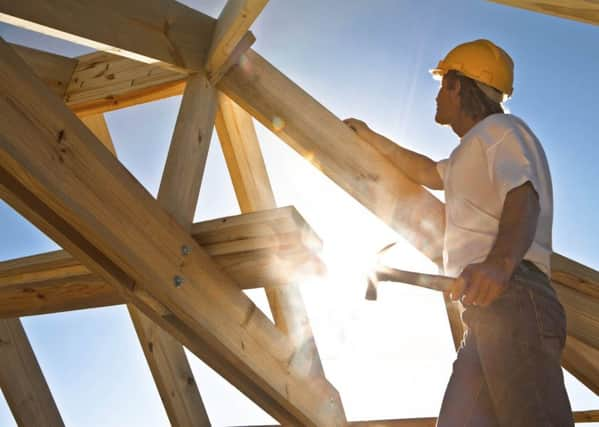Post-election house building growth slows


The latest Markit/Cips purchasing managers’ index (PMI) survey for the construction sector yesterday revealed that while house building remained the fastest growing area, it expanded at the second slowest pace since June 2013 amid soaring building costs, skill shortages and stretched sub-contractor availability.
It also found that sub-contractor charges rose at one of the fastest rates since the survey began in 1997.
Advertisement
Hide AdAdvertisement
Hide AdThe wider construction index showed a reading of 57.1 in July, down from 58.1 in June and lower than expected by most economists. But it remained well above the 50 point benchmark, which signals growth.
Tim Moore, senior economist at Markit and author of the survey, said: “July’s growth slowdown is the first for three months and perhaps a sign that the post-election impact on construction confidence has started to diminish.
“Residential activity expanded at one of the slowest rates for over two years, highlighting that the house building sector is struggling to gain momentum despite supportive demand conditions.”
House builders had enjoyed a boost in confidence following the general election, helping overall construction activity to hit a four-month high in June as the decisive Conservative majority win ended uncertainty.
But despite strong property market conditions, residential construction continues to be hampered with delays to new projects, and scarce supplier capacity adding to its challenges, according to Markit.
Economist Howard Archer at IHS Global Insight said: “The slowdown in housebuilding reported by the purchasing managers in July will be of some concern to the government, which is currently prioritising the sector to deal with the UK’s serious housing shortage.”
However, the survey found the pace of job creation remained strong.